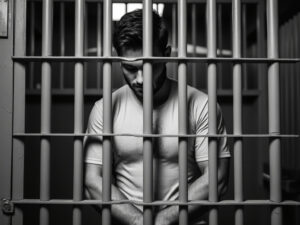
Parties Involved
Petitioner: Willie Mae Barker
Respondent: John Wingo, Warden (representing the state)
Background
Barker was charged with murder alongside another defendant, Silas Manning. The state believed Manning was the more culpable party and wanted to secure his conviction first. Consequently, Barker's trial was delayed numerous times over several years, partly to ensure Manning's testimony against Barker.
Issue
Barker claimed that these delays violated his right to a speedy trial under the Sixth Amendment.
Decision
The Supreme Court did not establish a specific time frame within which a trial must occur but instead adopted a balancing test to determine if a defendant's right to a speedy trial has been violated.
Balancing Test:
The Court outlined four factors to be considered:
1. Length of Delay:
A delay must be presumptively prejudicial to even trigger an inquiry into the other factors. The length considered "presumptively prejudicial" varies by case but generally, delays approaching one year are suspect.
2. Reason for the Delay:
Different reasons are weighed differently. Deliberate attempts to delay the trial to hamper the defense are weighed heavily against the state, while more neutral reasons like overcrowded courts are weighed less heavily but still considered.
3. Defendant's Assertion of the Right:
Whether and how the defendant asserted his right to a speedy trial. If the defendant did not assert this right, it might suggest the delay was not significantly prejudicial to them.
4. Prejudice to the Defendant:
This includes oppressive pretrial incarceration, anxiety and concern of the accused, and the most critical, whether the delay impairs the defense (e.g., loss of witnesses, fading memories).
The Court found that Barker's right to a speedy trial was not violated despite the significant delay. This was largely because Barker did not assert his right to a speedy trial until later in the process, suggesting he might have hoped for Manning's acquittal first, and there was no clear showing of prejudice against him due to the delay.
Barker v. Wingo established that the right to a speedy trial is not defined by a set time limit but by a flexible, case-by-case assessment. It emphasizes a fair approach rather than a rigid rule, ensuring that justice considers both the rights of the defendant and the complexities of each case.
Harm and Assertion of the right are the two most important factors. To demonstrate a violation of the right to a Constitutional speedy trial under the principles established by Barker v. Wingo, one does not necessarily need to show physical or financial harm in the traditional sense, but rather prejudice in terms of the legal and procedural aspects of one's case. Here are the key elements considered for prejudice or harm in the context of Barker v. Wingo:
1. Prejudice to the Defendant's Case:
This is the most significant form of harm. Prejudice here means that the delay could potentially impair the defense. Examples include:
Loss of Evidence: Witnesses might die, disappear, or their memories might fade, which could have supported the defendant's case.
Inability to Locate Witnesses: Delays might make it harder to find or bring witnesses to court who could testify on behalf of the defendant.
Loss of Alibi: Over time, specific details that could form an alibi might become impossible to verify or recall accurately.
2. Personal Prejudice:
While not as directly connected to the legal outcomes as the above, this includes:
Anxiety and Concern: Prolonged trials can cause significant stress and anxiety for the defendant, affecting their mental health.
Employment: Defendants might lose jobs or opportunities due to ongoing legal issues.
Social Stigma: The ongoing case might affect the defendant's reputation in the community, regardless of the outcome.
Loss of Enjoyment of Life: The ongoing case preventing you from doing some thing or taking some action that you would have otherwise done if the case was not pending.
3. Incarceration:
If the defendant is held in pretrial detention, an unnecessary or undue delay could mean extended time in jail before being proven guilty, which in itself is considered a form of harm.
The Barker v. Wingo decision does not require a defendant to prove actual harm in all these areas; rather, these elements are weighed among others like the length of delay, the reason for the delay, and the defendant's assertion of their right to a speedy trial. The presence of prejudice is one of the four factors courts consider, but the key is how these delays impact the fairness of the trial or the defendant's ability to defend themselves.
The Supreme Court in Barker v. Wingo emphasized that the right to a speedy trial protects against oppressive pretrial incarceration, minimizes anxiety and concern of the accused, and limits the possibility that the defense will be impaired. Therefore, the "harm" is more about these legal and personal impairments rather than requiring a demonstration of physical or monetary damage.
Contact Us Today
For a free consultation, contact the Law Offices of George Creal today on the web at www.georgecreal.com or on the phone at (404) 333-0706. We are here to help you navigate the legal system and fight for your rights.
Disclaimer
The information in this blog post is for general informational purposes only and should not be construed as legal advice. Please consult with an attorney to discuss your specific legal situation.

